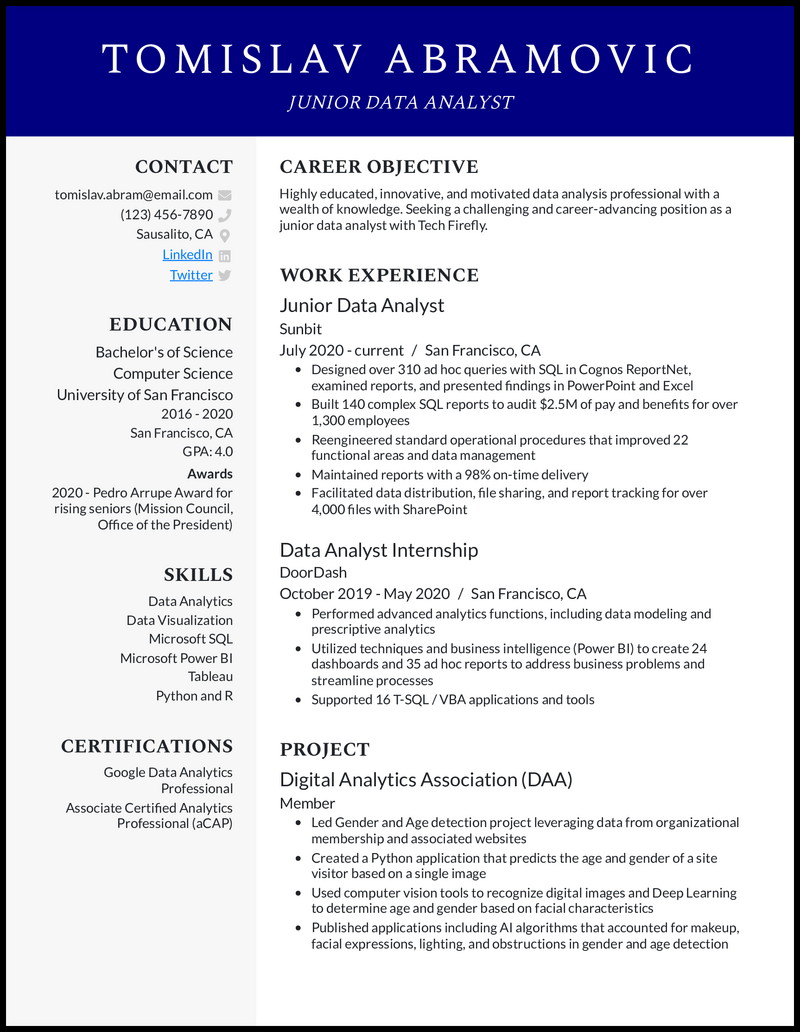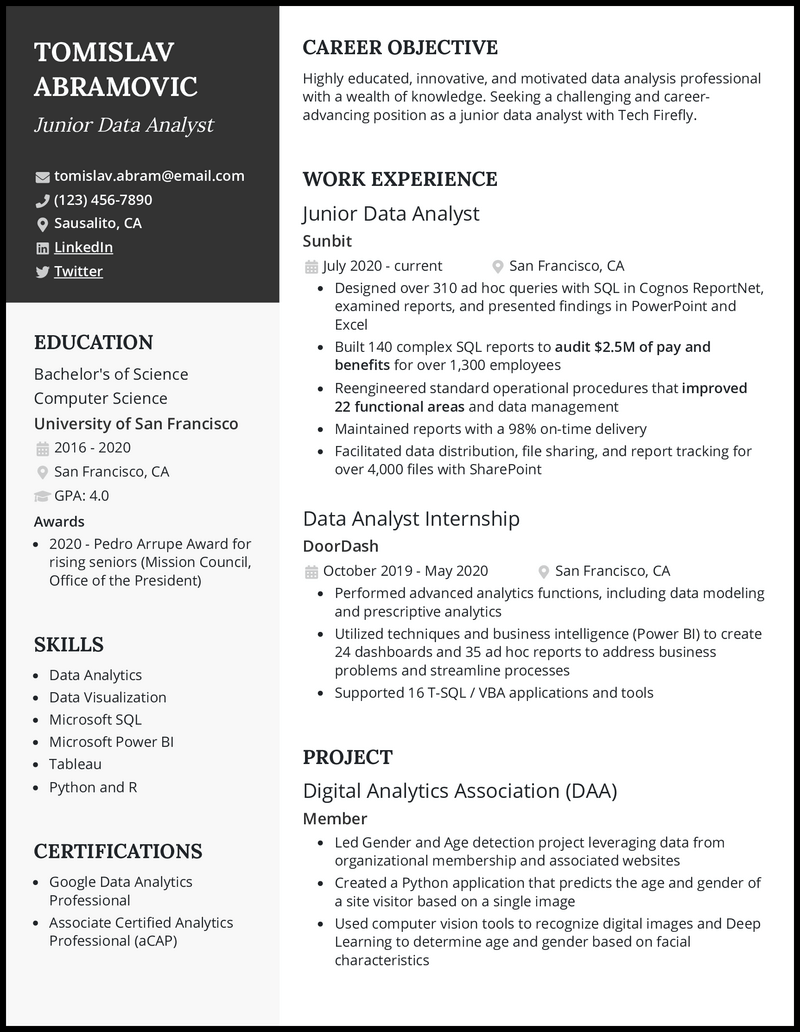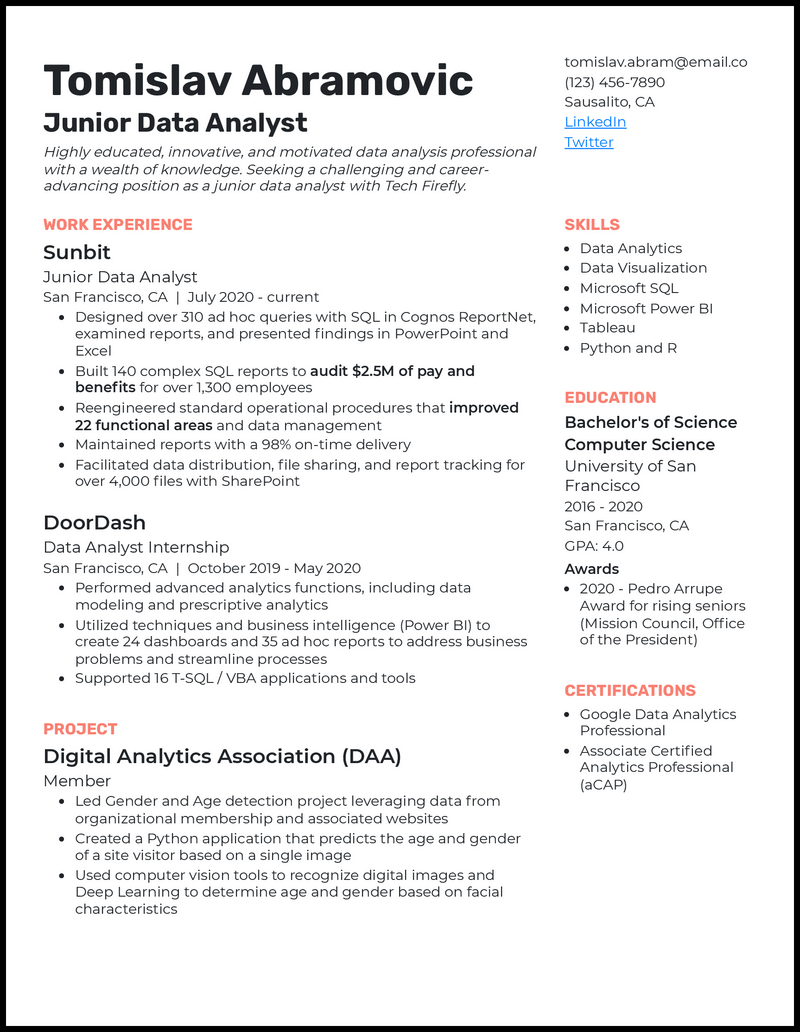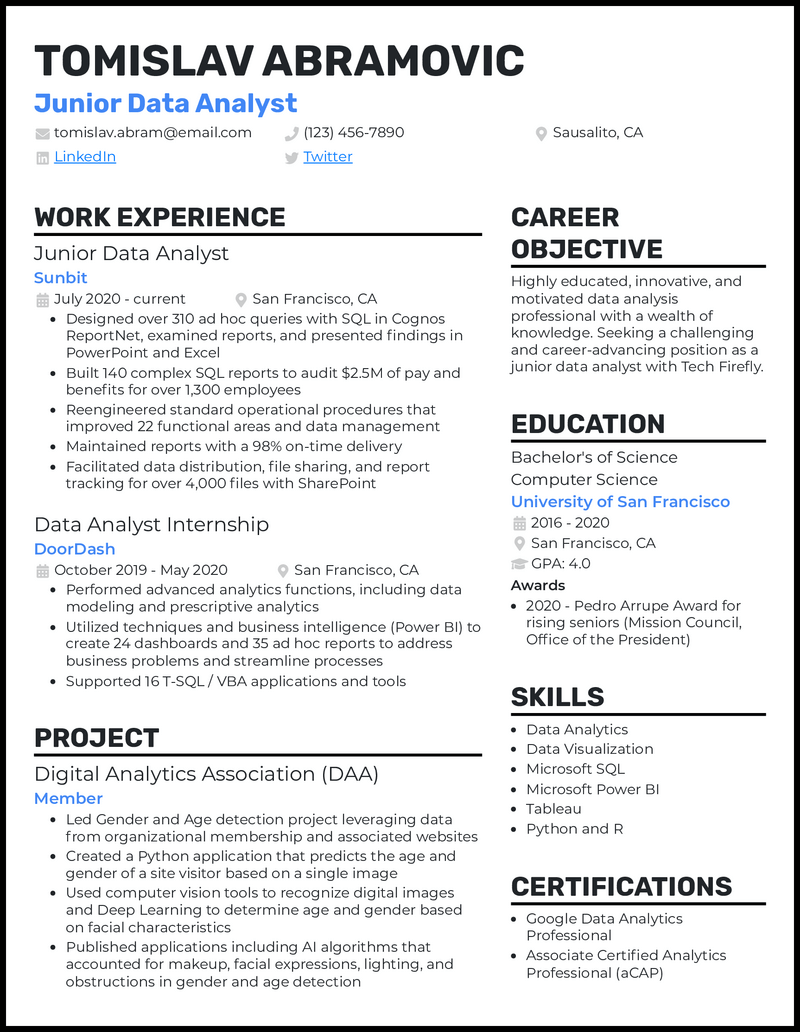How do you complete your junior data analyst resume when you don’t have much (or any) relevant experience?
Do you include non-relevant work experience? Should your education take up most of the resume? How long does this thing need to be? And do you need to create a cover letter, too?
We’ve helped thousands of data analysts break into the industry. These five junior data analyst resume templates and subsequent Q&A are a great jumping-off point.
Why this resume works
- Don’t stress things out too much on your junior data analyst resume. No one’s expecting you to do wonders right off the bat, but avoid downselling yourself.
- Use past experiences to show you’ve got a good idea of what this role entails like designing ad hoc queries, presenting data findings, creating dashboards, etc. As a cherry on top, use a strong career objective to mention you’re ready to learn and take on more challenging tasks.
What Matters: Your Skills & Work Experience
If you don’t have relevant data analyst working experience, how can you convince a recruiter that you can do the job?
The answer lies in two areas: your skills and your work experience/ projects.
As a junior data analyst, no one is expecting you to be an expert in every programming language and every data visualization tool.
Instead, recruiters want to know if you have skills you’re comfortable enough with to do the full-stack of data analysis.
9 Common Junior Data Analyst Skills
- Excel/ Sheets
- Python
- R
- matplotlib
- ggplot2
- SQL
- Tableau
- Statistics
- Probability
Sample Junior Data Analyst Work Experience
When we talk about work experience for a junior data analyst we’re talking about internships, projects, and non-relevant work experience.
You should opt to include your non-relevant work experience if you’re struggling to fill up one page of a resume. Having and maintaining any job demonstrates responsibility and reliability.
All bullet points in your work experience (and projects) should be focused on measurable impact and/or demonstrating your competency in a technical skill.
Here are a few examples:
- Collected and analyzed data to help my fantasy football team using Excel and SQL, improving my winning average by 15%
- Built an automated customer signup report leveraging SQL and Tableau to improve report accuracy by 55%
- Collected and standardized data from IMDB using MySQL and Python to build a predictive engine to help me decide which movies to watch next
- Created cost forecasting model for a club fundraiser helping to increase our profit margins by 27%
Top 5 Tips for Your Junior Data Analyst Resume
- Kinds of projects to include
- Any projects that show that you can take a question, find and collect data, then analyze it to answer that question should be included. Did you analyze your online dating data? Analyze your likes on social media? Any time you told a story with data is a project.
- Your relevant education
- Your education might be the biggest advantage you have if you don’t yet have relevant data analysis experience. In that case, really put it forward. Include classes you took that are relevant to the role (like statistics or programming).
- Build your resume to the job description
- This is easier than it sounds. First, include any technical skills you’re comfortable with that are mentioned in the job description. Second, highlight any experience or projects that come to mind as you read the job description.
- Employers don’t expect tons of experience
- Most companies are surprisingly reasonable (there are a lot of fun stories from the unreasonable ones). When they’re hiring for a junior or entry-level role, they don’t expect years of relevant experience. Don’t be ashamed of that fact, everyone starts somewhere!
- Keep your skills section in check
- The tendency for junior data analysts (speaking as a former junior data analyst myself) is to mention every skill they’ve ever heard of on their resume. Don’t do this; employers see right through it. Focus on the programming languages/ tools you really know best.
Frequently Asked Questions
- How do I mention my relevant certifications?
- If you have relevant certification, first, that’s awesome. Second, you should include them as a separate section on your data analyst resume. This really calls it out and draws attention to them.
- Do I include a career objective on my junior data analyst resume?
- Most of the time, you shouldn’t. One little hack we’ve witnessed work is to customize your career objective to each company you’re applying to. Companies, like everyone, want to read about themselves.
- Do I include my non-relevant work experience?
- If you don’t yet have relevant analysis experience, it’s a good idea to include your experience you think isn’t relevant. Put yourselves in the shoes of an employer, doesn’t hiring someone who has successfully held a job (any job) before give you more confidence?




![5 Junior Data Analyst Resume Examples [& Templates]](https://beamjobs.wpenginepowered.com/wp-content/uploads/2024/06/junior-data-analyst-resume.png)





